Dive into the world of cooking and baking as a hobby, where you can explore fresh artisan bread making, indulge in gourmet cake decorating, or craft unique cheese varieties. You’ll get to experiment with preserving and curing, giving you the joy of savoring seasonal flavors all year round. Whether you’re grilling the perfect steak, brewing your own beer, or concocting a delicious fermentation project like kimchi, these activities not only enhance your culinary skills but also enrich your lifestyle. Plus, they’re great ways to reduce stress and boost creativity. There’s a whole world of flavors waiting to be explored further.
Baking Basics
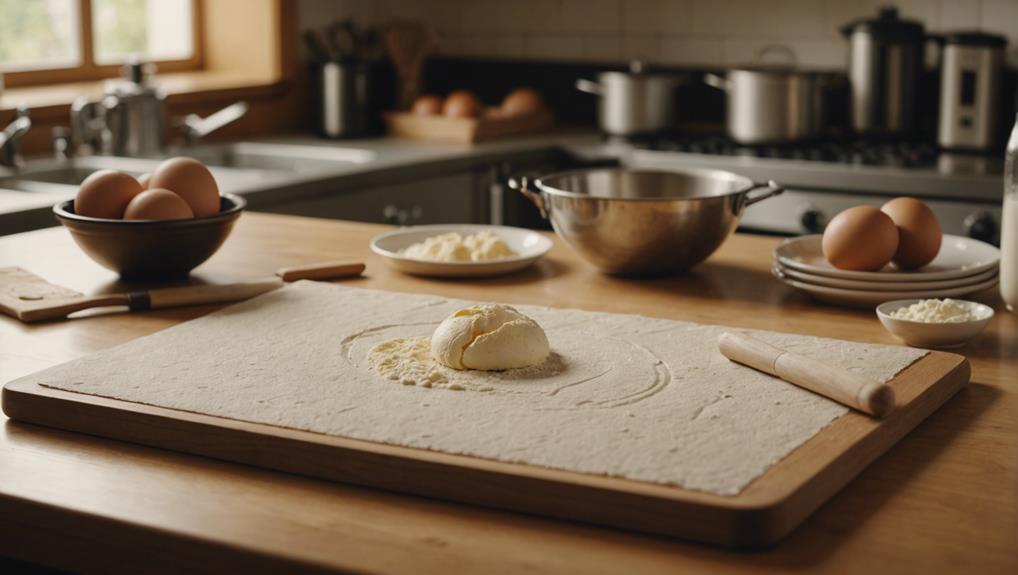
To excel in the art of baking, it’s crucial to begin by understanding the roles of fundamental ingredients such as flour, sugar, butter, and eggs. Flour is the backbone, providing structure; sugar not only sweetens but also aids in browning; butter contributes richness and depth of flavor; and eggs serve to bind and introduce air, which is vital for texture. Each component holds a key position in delivering a stellar baking result.
For those new to the world of baking, starting with straightforward recipes can be very advantageous. Here’s why engaging in simpler baking projects is a good hobby:
- Builds Confidence: Beginning with less complicated recipes leads to early successes that bolster your confidence, prompting you to tackle more intricate baking projects.
- Enhances Understanding: By sticking to basic recipes, you gain insight into how each ingredient functions and interacts. This knowledge is essential for effective troubleshooting in future baking endeavors.
- Saves Time: Simpler recipes tend to involve fewer steps and take less time, making the baking experience less intimidating and more delightful.
In addition to being a rewarding activity, baking encompasses a variety of specific interests within the hobby. Here are several popular baking activities that enthusiasts might explore:
- Bread Baking hobby: From rustic sourdough to soft brioche, bread baking is a deeply satisfying hobby that combines technical skills with sensory rewards.
- Cake Decorating: This creative avenue allows bakers to express artistic skills through the medium of sugar, fondant, and icing, crafting visually stunning cakes.
- Pastry Making: Crafting pastries like croissants and tarts requires precision and patience, catering to those who enjoy meticulous attention to detail.
- Cookie Baking: Perfect for both beginners and seasoned bakers, cookie baking offers endless variations and is ideal for sharing with loved ones.
- Chocolate Making: Diving into the world of chocolates involves tempering and molding skills, and can become a deliciously indulgent hobby.
- Vegan Baking: Catering to dietary restrictions or preferences, vegan baking challenges enthusiasts to explore alternative ingredients like plant-based milks and egg substitutes.
- Gluten-Free Baking: This niche requires learning about different flours and additives to create satisfying bakes without traditional wheat flour.
Each of these activities not only enriches the baking experience but also enhances the repertoire of any baking enthusiast, making it a truly enjoyable hobby that caters to diverse tastes and skills.
International Cuisine
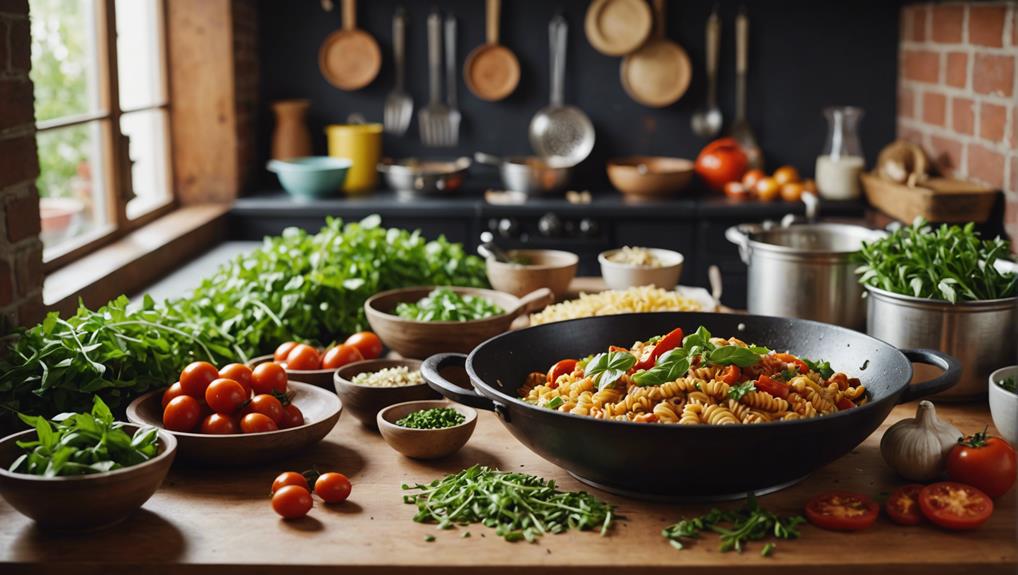
Exploring international cuisine is not just a hobby but a gateway to a world of vibrant flavors and age-old culinary traditions that can elevate your cooking prowess. Each dish narrates a tale of its culture and history, making every cooking session a delightful journey into the lives of people from different corners of the world. Whether you’re concocting a Thai curry with aromatic lemongrass and sharp galangal, or mastering the art of Italian ciabatta, you’re not merely cooking—you’re embarking on a global adventure right from your kitchen.
Engaging with international recipes significantly enhances your cooking and baking skills, introducing you to techniques that can both astonish and delight. It’s not only about discovering new flavors; it’s about embracing the stories and traditions woven through each dish. Here are several exciting hobbies within the realm of international cuisine that you might consider diving into:
- Spice Blending: Learn to create your own spice mixes, such as Garam Masala from India or Ras el Hanout from North Africa, to add authentic flavors to your dishes.
- Sushi Making: Master the art of sushi by learning how to prepare sushi rice, select fresh ingredients, and roll your own sushi at home.
- Italian Pasta Making: Discover the art of making pasta from scratch, including traditional techniques for shaping and cooking various types of pasta.
- French Baking: Delve into the world of French patisserie, mastering delicacies like croissants, macarons, and éclairs.
- Mexican Cooking: Explore the robust and vibrant flavors of Mexican cuisine by preparing dishes such as tamales, enchiladas, and authentic salsas.
- Chinese Dim Sum: Try your hand at making dim sum, learning techniques for preparing dumplings, buns, and other small bites steamed to perfection.
- Thai Street Food: Recreate the exotic flavors of Thai street food, focusing on dishes like Pad Thai, Satay, and Mango Sticky Rice.
- Middle Eastern Meze: Prepare a spread of Middle Eastern meze, featuring dishes such as hummus, falafel, and baba ganoush.
- Korean BBQ: Set up your own Korean BBQ at home, grilling meats and vegetables and serving them with a variety of traditional side dishes.
- Japanese Ramen Crafting: Dive into the intricacies of making authentic Japanese ramen. Learn how to prepare rich broths, noodles from scratch, and the perfect toppings, like marinated eggs and roasted pork belly.
- Spanish Tapas Creating: Explore the diverse and flavorful world of Spanish tapas. This involves preparing small, savory dishes such as patatas bravas, gambas al ajillo, and various montaditos (small sandwiches).
- Ethiopian Injera Baking: Discover the art of baking injera, the traditional Ethiopian sourdough flatbread made from teff flour. Pair it with stews like doro wat (chicken stew) and various vegetable dishes for a communal eating experience.
- Caribbean Cuisine: Experiment with the bold and spicy flavors of Caribbean cooking. Prepare dishes such as jerk chicken, curry goat, and ackee and saltfish, accompanied by sides like fried plantains and rice and peas.
- Greek Mediterranean Cooking: Engage with the fresh and healthy aspects of Greek cuisine. This includes making classic dishes like moussaka, souvlaki, and a variety of fresh salads like Greek salad, all enhanced with olive oil and Mediterranean herbs.
Each cuisine presents its own set of unique ingredients and methods. For example, baking a French baguette not only teaches you about achieving the perfect crust but also about crafting a soft, airy interior. Venturing into these diverse culinary landscapes will not only expand your palate but also deepen your appreciation for the rich tapestry of global cultures.
Embarking on this path of culinary exploration is a perfect hobby for those looking to blend their love of food with a thirst for cultural knowledge. It stands as one of the most interesting activities for individuals eager to challenge themselves in the kitchen while experiencing the joy of cooking and eating. So, why not start your flavorful journey today and see where your taste buds and curiosity take you?
Specialty Diets
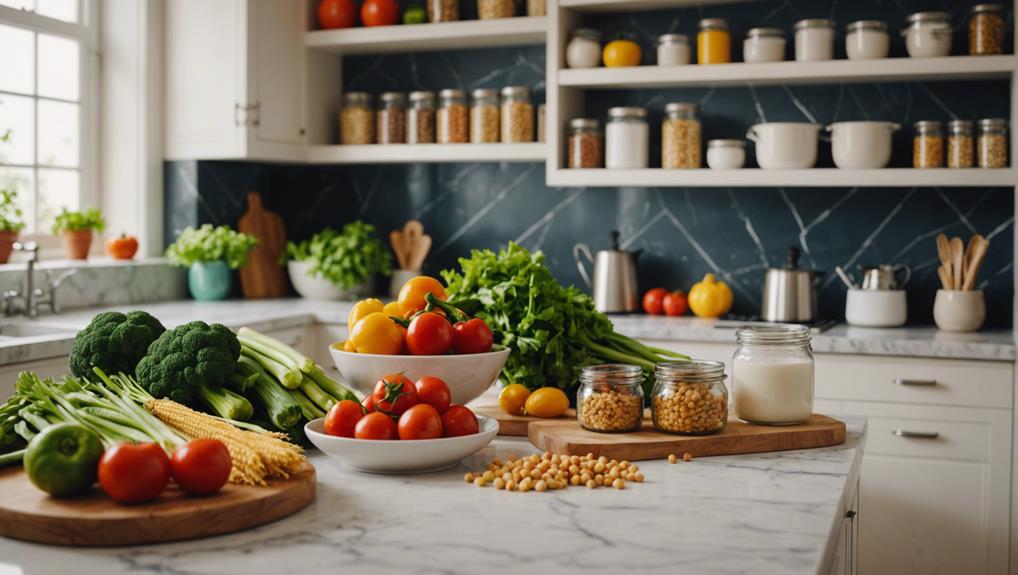
Exploring specialty diets isn’t just about meeting health needs or preferences; it’s a gateway to an array of exciting hobbies that transform how you experience and interact with food. Whether you’re a seasoned chef or a culinary novice, delving into the world of specialty diets can be both fulfilling and enjoyable. Here’s a list of hobbies within this intriguing category:
- Gluten-Free Baking: Perfect for those with gluten sensitivities or celiac disease, this hobby involves mastering the art of using gluten-free grains like almond flour, rice flour, and coconut flour to create delicious baked goods.
- Vegan Cooking Classes: Attend classes to learn how to replace dairy and meat with plant-based alternatives like coconut oil, flaxseeds, and legumes, enhancing your skills in vegan nutrition and cooking techniques.
- Raw Food Diet Preparing: Focuses on uncooked, unprocessed foods which often leads to the invention of creative salads, smoothies, and raw desserts that aren’t only healthy but also visually appealing.
- Paleo Diet Cooking: Revolves around the concept of eating like our ancestors, which means focusing on meats, fruits, and vegetables while avoiding processed foods and grains. This hobby challenges you to use natural ingredients creatively.
- Ketogenic Cooking: Involves creating meals that are high in fat and low in carbs to maintain a state of ketosis in the body. It’s fascinating to discover how high-fat ingredients like avocados and cheese can be turned into satisfying dishes.
- Vegetarian Meal Planning: Learn to craft meals that are hearty and nutritious without meat, focusing on vegetables, fruits, grains, and legumes, which can be as diverse as they’re delicious.
- Organic Gardening: Grow your own organic produce to use in your cooking. This not only ensures that you have fresh, pesticide-free ingredients but also connects you deeply with the food you consume.
- Fermentation Workshops: Dive into the world of fermenting your own foods, such as making kimchi, sauerkraut, or kombucha. This hobby not only produces unique flavors but also offers health benefits through probiotics.
- Herb and Spice Mastery: Learn about different herbs and spices that can transform a simple diet-specific meal into an exotic and flavorful experience. Understanding these can greatly enhance your cooking.
- Allergen-Free Cooking: Tailor recipes for those with specific food allergies, learning to substitute common allergens with safe and tasty alternatives, ensuring everyone can enjoy your dishes without worry.
These hobbies not only cater to specific dietary needs but also open up a world of new culinary challenges and delights. Engaging in these activities can transform your approach to food and cooking, making every meal an exciting adventure. Whether for health reasons or personal choice, each of these hobbies offers a unique way to enhance your lifestyle through the food you eat, making them a perfect hobby for enthusiasts looking to expand their culinary horizons.
Fermentation and Preservation
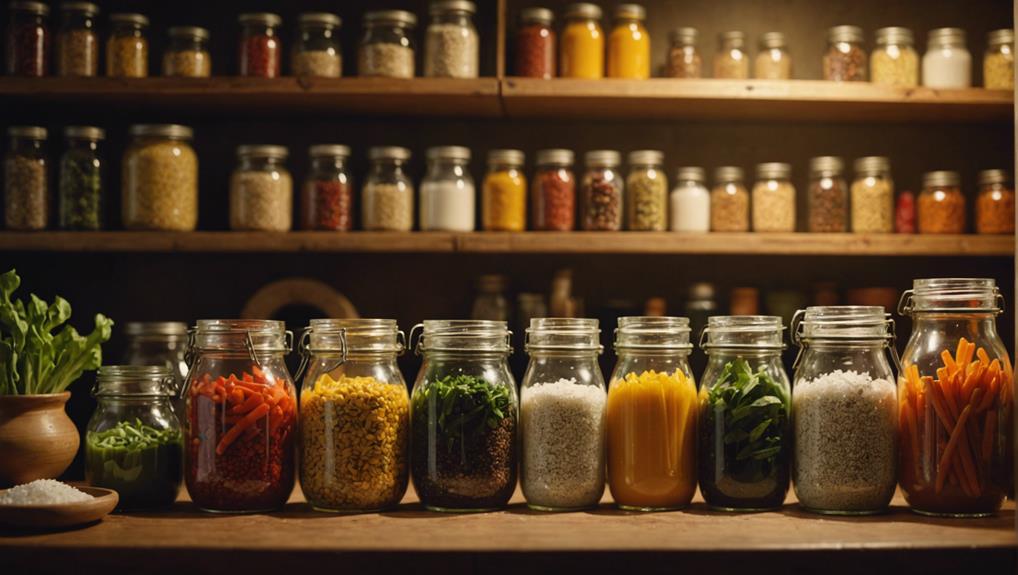
Explore the intriguing world of fermentation and preservation, where you can both extend the shelf life of ingredients and transform them into culinary delights with complex flavors and textures. This art of food transformation isn’t just about keeping food longer; it’s about enriching your dishes with distinctive tastes and health benefits, making it a perfect hobby for culinary enthusiasts.
Fermentation leverages the power of microorganisms to convert simple sugars and starches into acids or alcohol, preserving the food and enhancing it with unique flavors. This process also promotes gut health by introducing beneficial probiotics found in foods like kimchi, sauerkraut, and yogurt.
Meanwhile, preservation techniques such as pickling, drying, and curing have evolved over centuries, offering a variety of hobbies within this fascinating culinary category:
- Pickling: This involves soaking foods, typically vegetables, in vinegar or a brine solution. You can experiment with different spices and flavor combinations, creating pickles that can be enjoyed on their own or as part of various dishes.
- Drying: A method used to preserve herbs, fruits, and vegetables. Dried products are perfect for enhancing the flavor profiles in cooking and baking, such as incorporating dried herbs into bread or using dried fruits in pastries.
- Curing: Focuses on preserving meats using salt, sugar, and nitrates. Curing meats at home allows you to develop customized flavors for your cooking, such as making your own bacon or cured ham.
- Cheese Making: This involves the fermentation and preservation of dairy to produce cheese. Each type of cheese requires a different method of fermentation, offering a variety of tastes and textures.
- Brewing Beer: Homebrewing is a popular hobby that involves fermenting grains to produce beer. It combines both the science of fermentation and the art of flavor crafting.
- Wine Making: Similar to brewing, but with grapes or other fruits. Wine making allows enthusiasts to explore different grape varieties and fermentation techniques.
- Fermenting Beans and Grains: This can include making tempeh or miso, which are fermented soy products popular in various cuisines around the world.
- Making Vinegar: A process that involves fermenting alcoholic liquids into acetic acid. Homemade vinegars can be made from a variety of bases, such as wine, beer, or fruit, offering unique flavors for cooking.
- Preserving Jams and Jellies: This involves cooking fruits with sugar to create a spreadable, sweet preservation that retains the fruit’s flavors and extends its shelf life.
- Making Sauerkraut: Specifically involves fermenting cabbage, which is a simple entry into the world of fermentation that yields a product rich in probiotics.
Delving into these activities not only provides a great way to preserve food but also enhances your culinary skills, making each meal a new and exciting experiment. Whether you’re a novice or an experienced cook, the world of fermentation and preservation offers a wealth of enjoyable hobbies to explore.
Grilling and Barbecuing
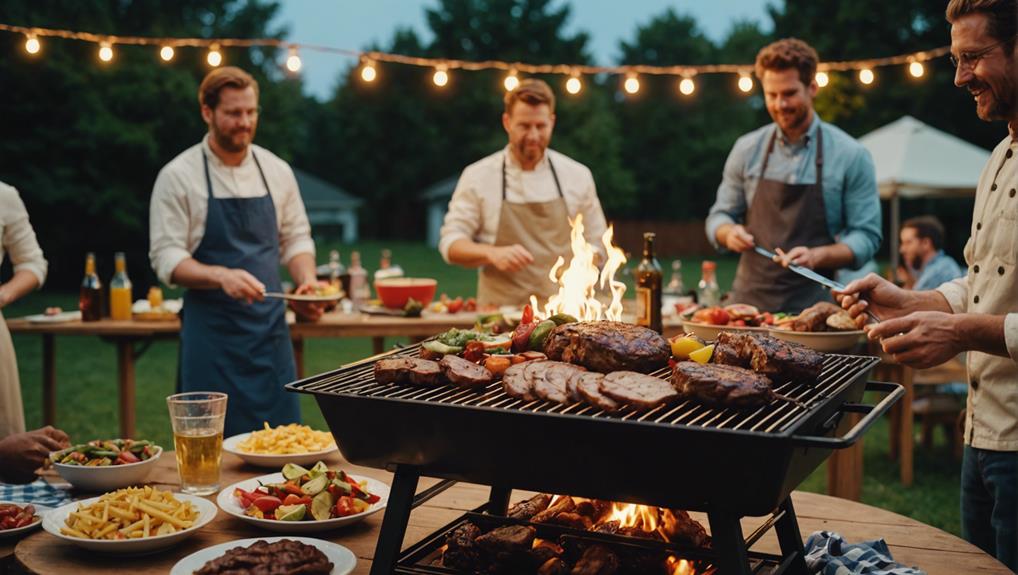
After delving into the intricacies of fermentation and preservation, you may find that the thrilling methods of grilling and barbecuing open up a new avenue in your culinary adventures. These cooking techniques not only elevate the flavors of your dishes but also provide an enjoyable way to entertain guests in an outdoor setting.
Grilling and barbecuing are arts that require finesse and a bit of know-how. Here are a few essential tips to help you get started:
- Preheat your grill: It’s crucial to heat your grill properly before cooking to ensure your food sears quickly and stays juicy on the inside.
- Control the heat: Mastering the management of hot and cooler zones on your grill is key to cooking various foods to perfection.
- Use the right tools: Quality grilling tools such as a reliable set of tongs, a sturdy spatula, and a grill brush are indispensable.
Exploring this activity further, here’s a list of related hobbies that range from the traditional to the uniquely innovative:
- Smoking Meats: Slow-cooking meats over low heat imbues them with rich, smoky flavors.
- Vegetable Grilling: Perfect for vegetarians or those simply looking to add more veggies to their diet, grilling can bring out sweet, charred flavors in vegetables.
- Outdoor Pizza Cooking: Using a grill to cook pizza offers a crispy crust and smoky flavor that can’t be achieved in a standard oven.
- Campfire Cooking: Ideal for camping trips, this involves preparing a variety of dishes over an open fire.
- Rotisserie Grilling: Rotating meat on a spit ensures even cooking and basting in its own juices, making for a tender and flavorful dish.
- Korean BBQ: A fun and interactive dining experience where guests grill their own meat and vegetables at the table.
- Charcoal Artistry: Mastering charcoal grilling can elevate simple ingredients through complex flavors.
- Fish Grilling: Seafood cooked on the grill, often wrapped in foil with herbs and lemon, retains moisture and gains a delightful smokiness.
- Fruit Grilling: Grilled fruits like peaches and pineapples make for delicious desserts or salad additions.
Each of these hobbies offers a unique taste and experience that distinguishes it from conventional cooking methods. Whether you’re hosting a backyard barbecue or simply enjoying a meal under the stars, grilling and barbecuing are exciting hobbies that can make any culinary enthusiast’s heart ignite with passion. So, put on your apron, step outside, and let the flames inspire you to whip up impressive, mouth-watering meals.
Dessert and Confectionery Making
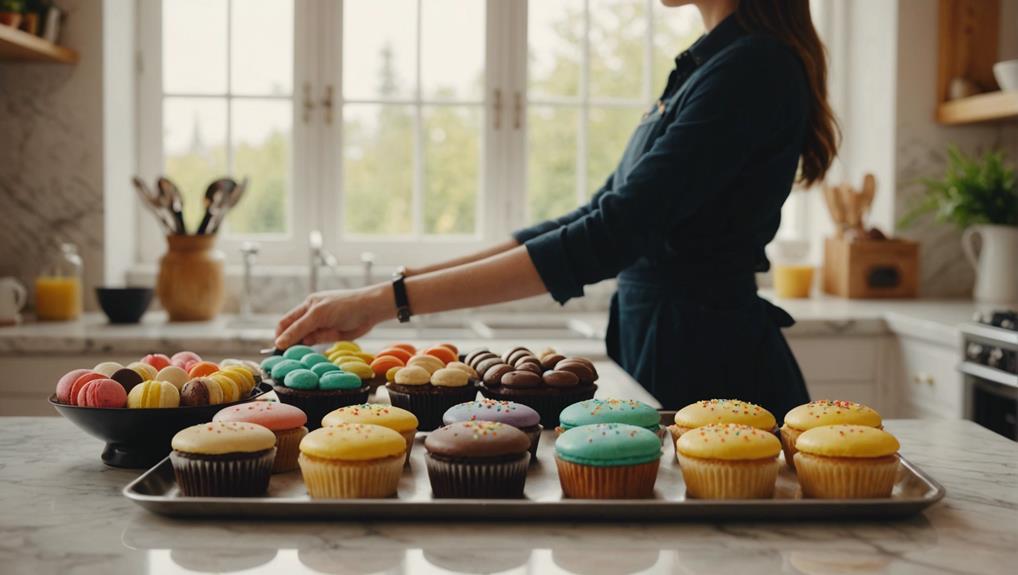
Exploring the world of dessert and confectionery making introduces you to an activity where precision meets creativity. This interest involves creating delightful sweets, from cookies to elaborately decorated cakes. Remember, precision is key, so always start by thoroughly reading the recipe.
Here’s a simple guide to help you embark on this enjoyable hobby:
| Step | Tip | Essential Tool |
|---|---|---|
| Measure | Accuracy is crucial; use scales. | Digital scale |
| Mix | Follow the recipe’s order. | Mixer or whisk |
| Bake/Decorate | Monitor the oven closely; take your time with decorations. | Oven, piping bags |
Begin with straightforward recipes, like cupcakes or drop cookies, which are perfect for beginners. As you become more confident, feel free to experiment with different flavors and decorations to make your creations unique.
Investing in quality baking pans, mixers, and decorating tools is crucial as it significantly affects the ease of making desserts and the quality of the final products. Enjoy the sweet rewards of this new hobby!
In addition to baking and decorating cakes, here are some other popular hobbies within the dessert and confectionery making category:
- Chocolate Making: Crafting your own chocolates allows for customization of flavors and shapes, making it a highly personalized activity.
- Candy Crafting: From hard candies to gummies, learning the precise temperatures and techniques can be an exciting challenge.
- Pastry Making: Specializing in pastries like croissants or tarts requires a focus on technique and creativity.
- Ice Cream Making: Creating homemade ice cream offers endless possibilities for unique flavor combinations.
- Bread Baking: While technically part of baking, making artisan breads is a deeply satisfying skill that combines chemistry and art.
- Macaron Crafting: These delicate confections are a test of precision in baking, filling, and assembly.
- Fondant Sculpting: Ideal for those who love to create intricate, edible art designs on cakes.
- Pie Baking: Perfecting the art of pie-making, from flaky crusts to luscious fillings, can be a rewarding endeavor.
- Cookie Decorating: This can range from simple icing designs to elaborate decorations that transform cookies into works of art.
- Dessert Designing: Combining various dessert making skills to create complex, multi-element desserts.
Whether you’re a novice or looking to refine your skills, dessert and confectionery making offers a range of interesting options to explore, making it a perfect hobby for those with a sweet tooth and a flair for creativity.
Advanced Cooking Techniques
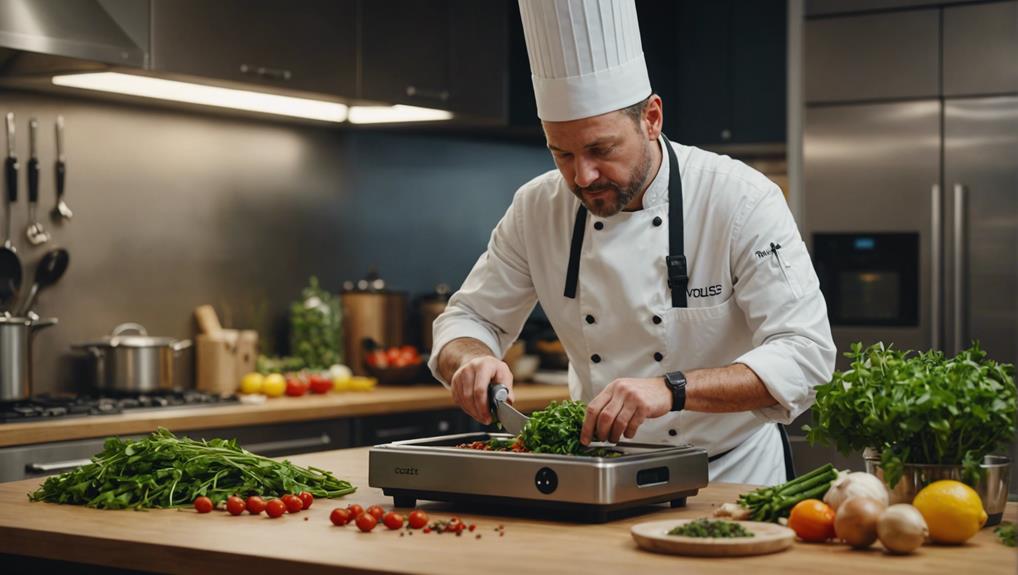
Exploring advanced cooking techniques such as sous vide, molecular gastronomy, and fermentation can elevate your culinary skills and transform your dishes with precision and innovation. These methods not only enhance your cooking but also provide a platform to impress your loved ones with unique flavors and presentations.
Consider diving into the following cooking hobbies to expand your repertoire:
- Sous Vide Cooking: This technique involves cooking food in a precisely controlled water bath, ensuring perfect doneness.
- Molecular Gastronomy: Experiment with the science of cooking to create visually stunning and texturally unique dishes.
- Fermentation: Develop rich, complex flavors in foods like homemade bread, pickles, and sauerkraut.
- Cheese Making: Craft your own cheeses, from mozzarella to cheddar, and understand the subtleties of aging and flavor development.
- Charcuterie: Learn to cure and preserve meats, creating everything from salami to prosciutto.
- Beer Brewing: Brew your own beers at home, experimenting with different hops, yeast strains, and brewing techniques.
- Wine Making: Delve into the art of winemaking, understanding the intricacies of grape varieties and fermentation processes.
- Craft Cocktail Mixing: Develop a repertoire of classic and innovative cocktails, mastering techniques like muddling and infusing.
- Preserving and Canning: Preserve seasonal fruits and vegetables to enjoy year-round, mastering techniques like water bath and pressure canning.
- Cake Decorating: Enhance your baking skills with advanced decorating techniques, using fondant, buttercream, and more.
As you delve into these rewarding activities, remember:
- Patience is key: Each technique requires time and attention to detail.
- Embrace creativity: Don’t be afraid to experiment with different ingredients and recipes.
- Learn from errors: Making mistakes is part of the learning process when trying something new.
These advanced techniques might seem daunting at first, but they offer a fantastic opportunity to expand your culinary skills and explore new interests. Whether you’re hosting a dinner party or just cooking for fun, mastering these skills can provide immense satisfaction and a sense of achievement. So, why not start this weekend? Gather some recipes, invite some friends or family over, and enjoy the process of becoming a more versatile chef in what could be your next exciting hobby.
Seasonal and Farm-to-Table Cooking
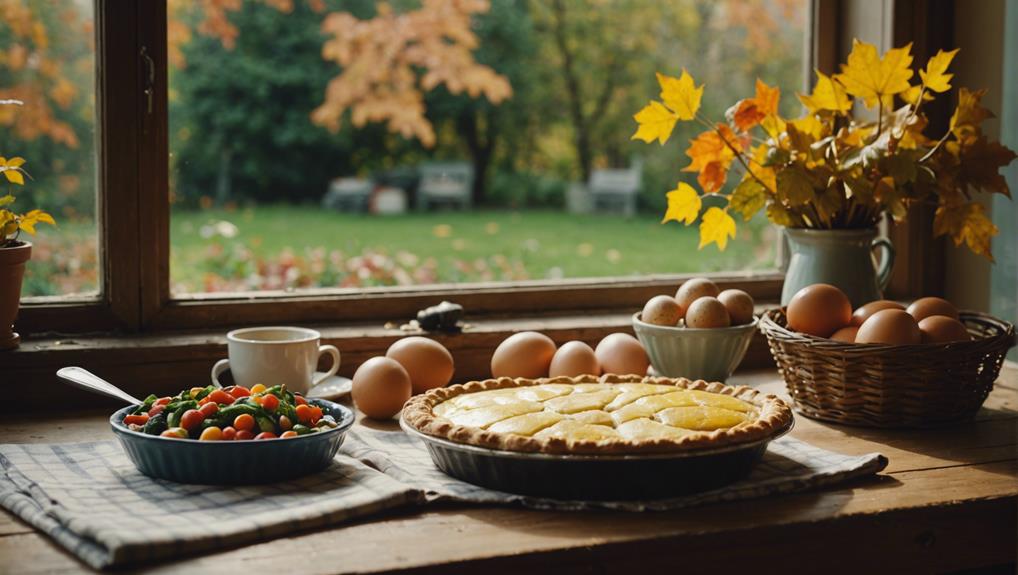
While mastering advanced cooking techniques can significantly enhance your culinary skills, engaging in seasonal and farm-to-table cooking elevates the freshness and sustainability of your dishes. By selecting fresh ingredients at their peak, you benefit from superior flavor and nutrition, support local agriculture, and minimize your environmental impact.
Seasonal cooking introduces a variety of flavors that evolve throughout the year, enriching your dishes with ingredients like crisp autumn apples in pies or ripe, juicy tomatoes in summer salads. Farm-to-table cooking deepens this approach by linking you directly with the origin of your food, fostering an appreciation for the labor involved in each ingredient and promoting a mindful cooking practice.
Here are three key advantages of incorporating these practices into your cooking routine:
- Enhanced Flavor: Fresh ingredients deliver more intense and delightful flavors.
- Environmental Impact: Purchasing from local producers cuts down on transportation emissions.
- Community Support: Your expenditures at local farms bolster the local economy.
Embracing seasonal and farm-to-table cooking isn’t just about crafting exquisite meals; it’s about making a positive impact with every dish you prepare. This approach aligns well with various cooking-related hobbies that are both enjoyable and rewarding. Here’s a list of hobbies in this category that you might find interesting:
- Vegetable Gardening: Grow your own produce to use in your kitchen, ensuring the freshest ingredients.
- Foraging: Learn to safely gather wild edibles like berries, mushrooms, and herbs, depending on the season.
- Canning and Preserving: Extend the life of seasonal bounty through jams, pickles, and preserves.
- Baking: Explore seasonal recipes for bread, pies, and pastries that incorporate local ingredients.
- Cheese Making: Start crafting your own cheeses, using local milk for a farm-to-table touch.
- Brewing and Winemaking: Create your own beers or wines, experimenting with local fruits and flavors.
- Farm Visits: Regularly visit local farms to source ingredients, learn about agriculture, and pick your own produce.
- Cooking Classes: Join classes focusing on seasonal and local cooking to refine your skills and knowledge.
- Herb Gardening: Cultivate a kitchen garden with herbs to freshen up any dish.
- Farmers Market Shopping: Make regular trips to your local farmers market to inspire your cooking with seasonal produce.
Integrating these activities into your lifestyle not only enhances your culinary creations but also aligns with a sustainable and community-focused way of living, making each a perfect hobby for enthusiasts looking to connect deeper with their food sources.
Healthy and Fitness-Focused Cooking
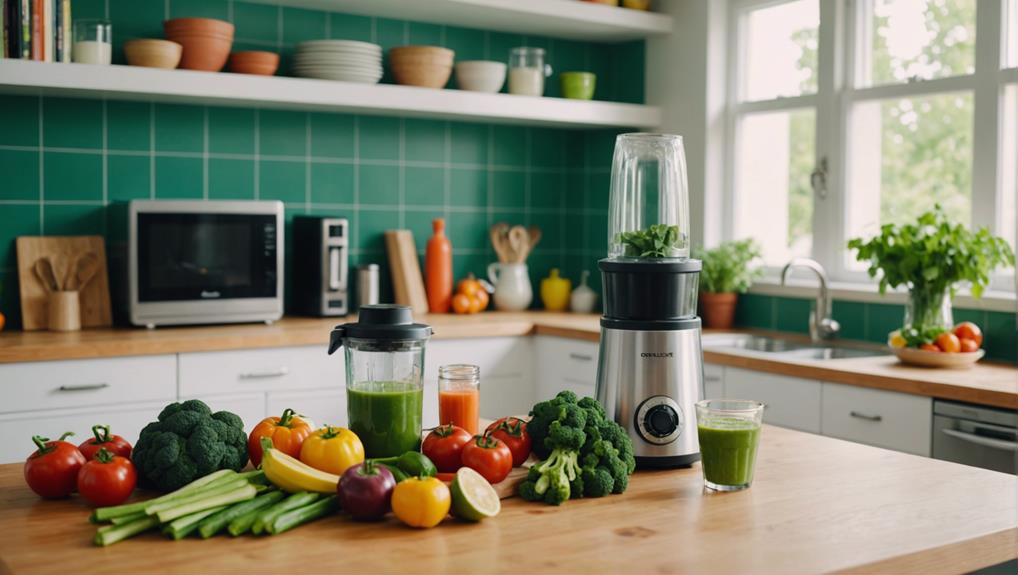
Healthy and fitness-focused cooking isn’t just about fueling the body; it’s an enjoyable hobby that enhances your culinary skills with vibrant, nutritious ingredients. By adopting this cooking style, you’re choosing to create dishes rich with leafy greens, fresh berries, nuts, and lean proteins, each known for their health benefits and unique flavors. This method of cooking turns meal preparation into a fun hobby that also supports your physical goals.
Here are some popular cooking techniques that preserve the nutritional value of your meals:
- Grilling: Ideal for adding a smoky flavor while keeping the meal low in fat.
- Steaming: Excellent for maintaining the maximum nutrient content of vegetables and fish.
- Sautéing: Requires a small amount of oil and enhances the natural flavors of food.
- Baking: Offers a way to prepare dishes evenly without the need for excess oil.
- Poaching: Gently cooks the food by submerging it in a small amount of simmering water, preserving tenderness and flavor.
- Blanching: Briefly boiling vegetables and then plunging them into ice water, which preserves their crispness and color.
- Roasting: Uses dry heat to evenly cook meats and vegetables, enhancing their natural sweetness.
- Slow Cooking: Allows ingredients to simmer in their own juices over several hours, which can deepen the flavors without the need for added fats.
- Pressure Cooking: Cooks food quickly under high pressure, which helps in retaining nutrients that are often lost in other cooking methods.
Exploring these cooking methods as part of your culinary hobby can be incredibly rewarding. Each technique offers a new dimension to your dishes, making every meal an opportunity to enjoy and share healthy, delicious food with family and friends. Whether modifying a family favorite or trying out a new recipe, embracing these cooking practices ensures that your meals aren’t just enjoyable but nutritionally beneficial. Making healthy cooking a part of your lifestyle is a great hobby that brings lasting benefits to both body and spirit.
Artisanal and Craft Foods
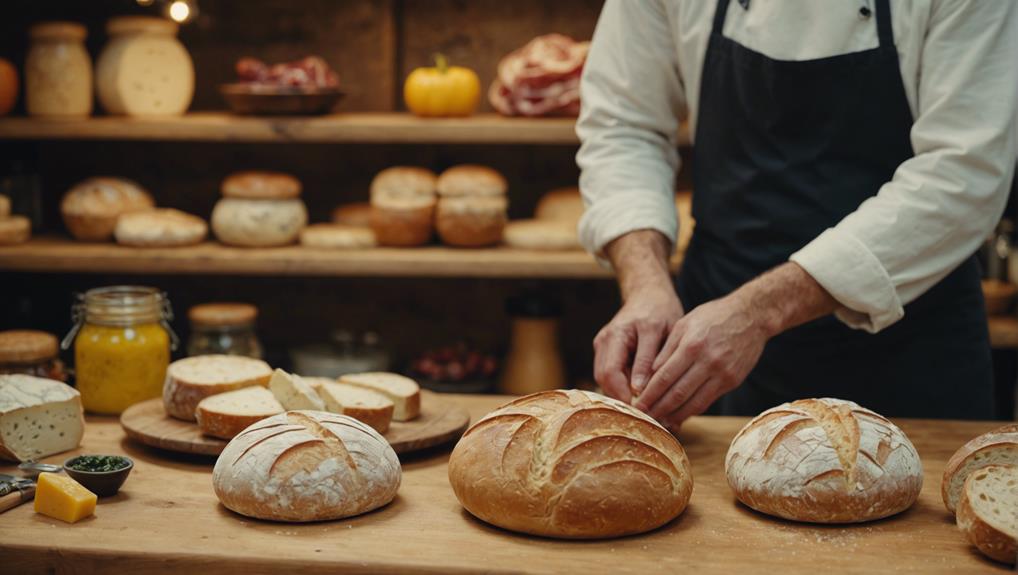
Exploring the realm of artisanal and craft foods opens up a world of opportunities for those interested in adopting a cool hobby that merges creativity with culinary skill. This engaging activity isn’t just about cooking; it’s a deep dive into a tradition of sustainability, craftsmanship, and a celebration of quality ingredients.
For those eager to start a new adventure in the kitchen, here are some fascinating artisanal food-making techniques to consider:
- Fermentation: Dive into the world of beneficial bacteria by creating your own homemade sauerkraut, kimchi, or kombucha. This ancient technique not only produces unique flavors but also offers health benefits.
- Pickling: Transform cucumbers, carrots, beets, and more into tangy treats. Pickling is a great way to preserve seasonal produce and add a zesty twist to any meal.
- Curing: Learn the art of curing meats such as bacon, salami, or prosciutto. This method extends the shelf life of meats while enhancing their flavors.
- Cheese Making: Start with simple cheeses like mozzarella or ricotta and gradually work your way up to aged varieties like cheddar or gouda.
- Baking Artisan Bread: Embrace the rewarding process of sourdough baking or crafting the perfect baguette. This hobby will fill your home with the aroma of freshly baked bread.
- Crafting Herbal Infusions: Create your own herbal teas or infused oils using garden-fresh herbs. This is a delightful way to enjoy the subtle nuances of herbal flavors.
- Handmade Pasta: Rolling and shaping your own pasta is a therapeutic process that can become a family favorite activity.
- Brewing Craft Beer: For those with a taste for hops and barley, brewing beer at home can be an exciting venture into the science of fermentation.
- Making Gourmet Condiments: Whip up mustards, mayonnaise, or exotic chutneys that can elevate any ordinary meal to something extraordinary.
- Artisanal Chocolate Making: Explore the intricate process of tempering chocolate and creating confections that are both beautiful and delicious.
Each of these hobbies offers a unique way to connect with traditional food-making practices while providing endless opportunities for creativity and personalization. Starting with these activities can transform your kitchen into a vibrant artisanal workshop, where each product tells a story of passion and dedication. Whether you’re looking for a relaxing pastime or an in-depth culinary challenge, the world of artisanal and craft foods is ripe with possibilities.
Tea and Coffee Crafting
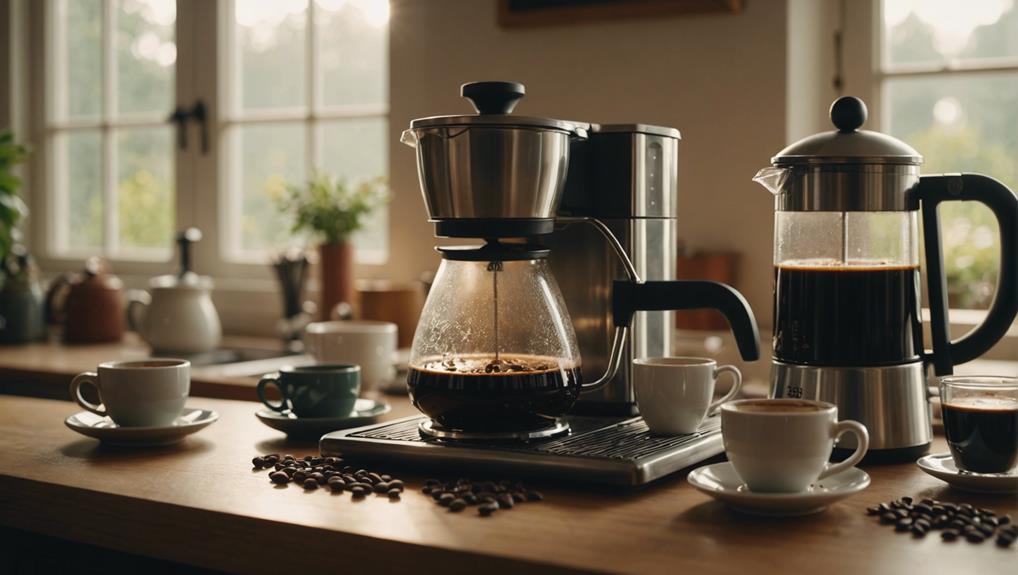
Exploring the art of tea and coffee crafting lets you delve into a variety of brewing techniques like pour-over and French press, each offering its unique flavor profile. Whether you’re a morning coffee enthusiast or a tea lover seeking comfort in a cup, mastering these methods can transform your daily ritual into a gourmet experience.
To start, consider these essential factors for a perfect brew:
- Water Temperature: Too hot and your coffee burns, too cool and your tea remains under-extracted. Aim for about 195°F to 205°F for coffee and 175°F to 185°F for tea.
- Grind Size: The coarseness of your coffee grind affects extraction. A fine grind is ideal for espresso, while a coarser grind works best for French press.
- Brewing Time: Patience is key. Generally, coffee should brew for about 4-5 minutes in a French press, whereas tea can vary widely depending on the type.
Experimenting with different origins and blends of tea and coffee can significantly influence the taste. Each variety comes with its own story and flavor, from bold African coffees to delicate Asian teas. Engage your senses fully—observe the color, inhale the aroma, and savor each sip. As you refine your skills, each cup becomes a testament to your craft.
In the world of tea and coffee crafting, you can explore several engaging and enjoyable hobbies that include:
- Home Roasting: Roasting your own coffee beans at home allows you to control the flavor profile and freshness.
- Latte Art: Perfecting the pour to create intricate designs on the surface of a latte.
- Herbal Tea Blending: Crafting unique herbal tea blends from various dried herbs, flowers, and spices.
- Cupping: A professional practice for tasting and comparing the flavors of different coffee beans.
- Tea Tasting: Developing a refined palate to distinguish the subtle differences between various types of teas.
- Cold Brew Crafting: Experimenting with the time and technique required to produce smooth, rich cold brew coffee.
- Espresso Machine Mastery: Learning the intricacies of operating an espresso machine to make the perfect shot.
- Coffee Farming: For the truly dedicated, starting a small coffee farm can be a rewarding, though challenging hobby.
- Tea Ceremony: Participating in or conducting traditional tea ceremonies, which can be a deeply cultural and meditative experience.
- Sustainable Sourcing: Engaging in the pursuit of ethically sourced and environmentally sustainable coffee and tea.
These activities offer a mix of creative, cultural, and technical skills, making tea and coffee crafting a perfect hobby list for enthusiasts looking to deepen their engagement with these beloved beverages. Whether you choose to focus on one technique or try them all, each offers a unique way to enjoy and appreciate the finer details of tea and coffee.
Cooking for Special Occasions
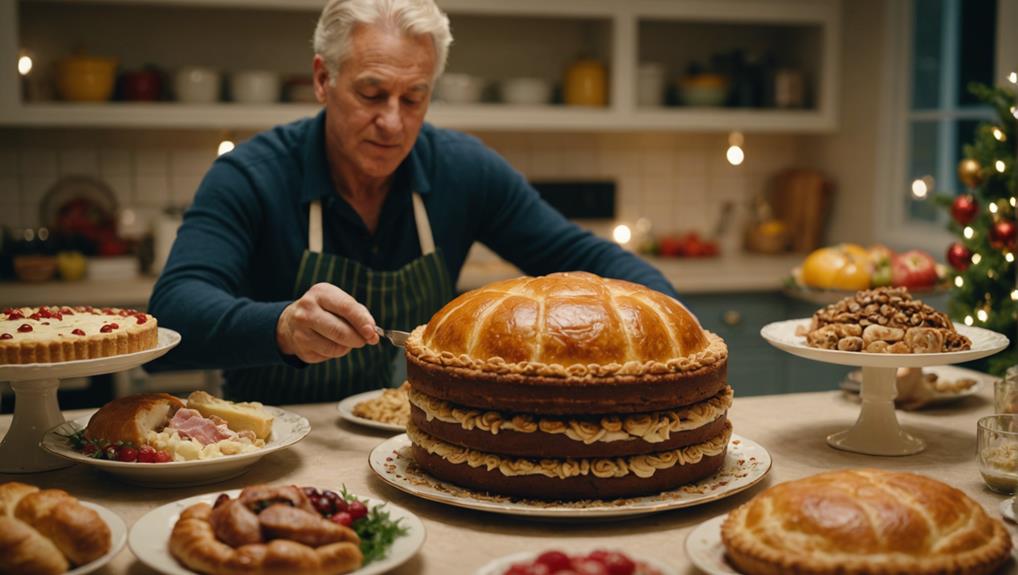
Cooking for special occasions offers a delightful way to express your culinary artistry and make any event memorable. Whether you’re celebrating holidays, birthdays, or anniversaries, these moments provide a platform for you to showcase both traditional and novel recipes that captivate your guests. This activity not only allows for personal expression but also enhances your skills and brings joy to both the cook and the attendees.
Here are three key reasons why cooking for special occasions is a rewarding interest:
- Personalization: Tailoring your menu to the occasion or to the preferences of your guests adds a personal touch that makes the meal more intimate and special.
- Skill Enhancement: Special occasions challenge you with intricate recipes and advanced techniques, fostering growth in your culinary capabilities.
- Joy and Satisfaction: The pleasure derived from watching your loved ones enjoy your creations contributes significantly to the enjoyment of the event.
In the realm of culinary activities for special occasions, here is a list of interesting hobbies that include both classic and innovative approaches:
- Gourmet Baking: Crafting intricate cakes and pastries that are both visually stunning and delicious.
- Ethnic Cuisine Preparation: Exploring and preparing dishes from different cultures, which can be themed around the heritage of the guests or the occasion.
- Wine Pairing: Learning and applying the principles of which wines complement different types of dishes to enhance the dining experience.
- Artisan Bread Making: Delving into the craft of baking bread from scratch, using traditional methods and ingredients.
- Farm-to-Table Cooking: Emphasizing the use of fresh, local ingredients to create dishes that are both flavorful and sustainable.
- Charcuterie Board Designing: Arranging a variety of meats, cheeses, and accompaniments in an aesthetically pleasing manner that encourages communal dining.
- Vegetarian and Vegan Cooking: Developing special occasion menus that cater to vegetarian or vegan dietary preferences without compromising on taste.
- Molecular Gastronomy: Incorporating scientific techniques to create futuristic dishes that surprise and delight guests.
- Outdoor Grilling and Barbecuing: Utilizing the grill to produce flavorful, smoky dishes perfect for outdoor events.
- Cocktail Crafting: Mixing classic and innovative cocktails that complement the meal and elevate the festive atmosphere.
Engaging in these activities not only enhances the celebratory feel of any occasion but also enriches your repertoire, making cooking a truly enjoyable hobby.
Culinary Arts and Presentation
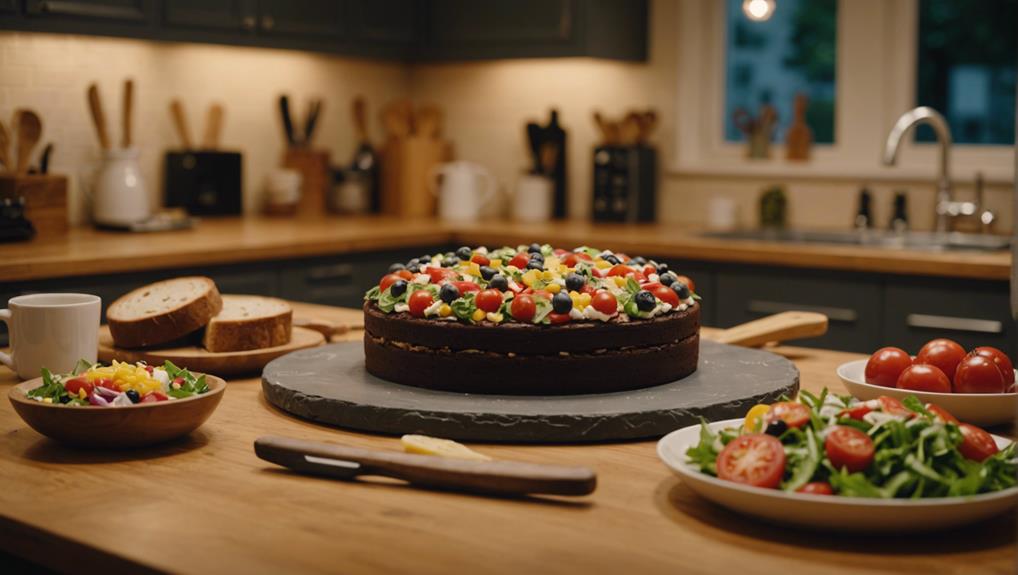
Elevating the art of culinary presentation can transform your meals into visually stunning experiences that delight the senses. When arranging a plate, you’re not merely serving food; you’re crafting an experience that engages sight, taste, and touch. Choosing the right colors, textures, and layout can elevate a simple meal into a breathtaking visual feast, enhancing the enjoyment of every bite.
Here’s how you can enhance your culinary presentations:
- Focus on Color Contrast: Introduce vibrant vegetables or bold sauces that provide a striking contrast to the main dish. This not only makes the dish visually appealing but also adds to the aesthetic appeal of your meal.
- Play with Textures: Mix elements like crispy, creamy, and crunchy to introduce variety and intrigue. This approach not only looks impressive but also stimulates the palate in diverse ways.
- Consider Composition: Thoughtfully arrange your ingredients. View the plate as a canvas and the ingredients as your palette. Strategically place elements in odd numbers and utilize negative space to achieve visual balance.
Exploring the culinary arts as a hobby can be both rewarding and enjoyable. Here are some interesting culinary hobbies that you might consider diving into:
- Home Baking: Perfect for those who love sweets and the comforting smell of baked goods. From bread to pastries, home baking is a satisfying and delicious hobby.
- Fermentation: Making your own sauerkraut, kimchi, or kombucha can be a fascinating process and introduce you to new flavors.
- Gourmet Cooking: Take your cooking skills to the next level by learning to prepare gourmet dishes with intricate flavors and presentations.
- Cake Decorating: Combine creativity with culinary skills by designing and decorating elaborate cakes.
- Grilling and Barbecue: Ideal for those who enjoy outdoor cooking, this hobby allows you to master the art of fire and flavor.
- Wine Tasting and Pairing: Learn about different wine varieties and how to match them with foods to enhance both the drink and the meal.
- Food Photography: Not only prepare beautiful dishes but also learn how to photograph them professionally to share with others.
- Ethnic Cuisine Exploration: Dive into the foods of different cultures and learn about the ingredients and techniques that make them unique.
- Vegetarian and Vegan Cooking: Focus on plant-based recipes, exploring how to make satisfying meals without animal products.
- Culinary Travel: Combine travel with your love of food by visiting renowned food destinations and trying local specialties.
Indulging in these culinary hobbies not only enriches your skillset but also makes dining a more exciting and diverse experience. Whether you’re kneading dough or decorating a cake, each activity offers a unique blend of creativity, technique, and taste. Engaging in these activities can be a perfect hobby for anyone looking to expand their culinary horizons and enjoy the art of food.
Benefits of cooking and baking hobbies
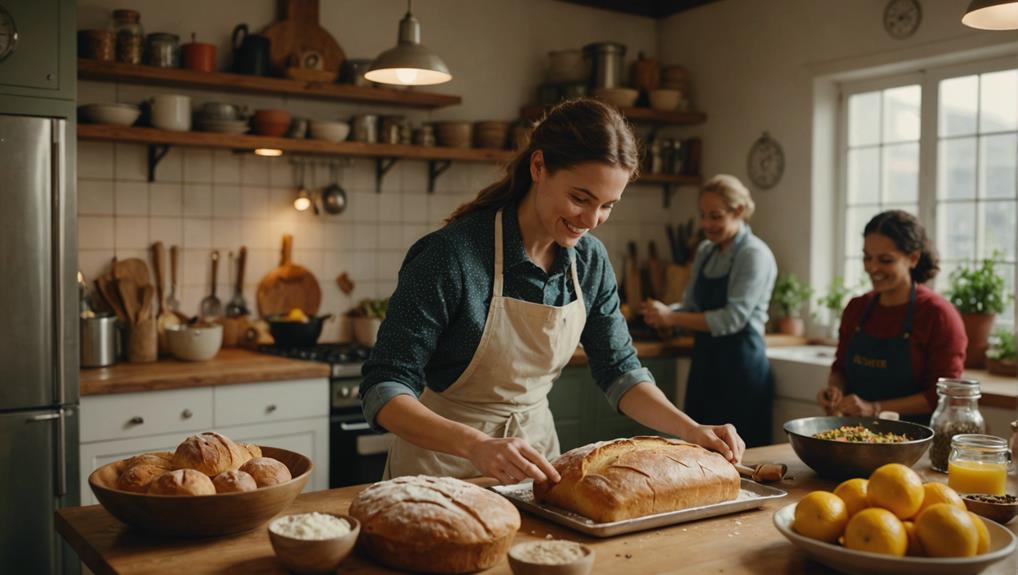
Delving into cooking and baking hobbies not only sharpens your culinary skills but also significantly enhances your mental well-being. As you immerse yourself in the art of creating dishes, you’ll find it’s not just about the delicious outcomes. Here’s how these activities boost more than just your kitchen prowess:
- Stress Reduction: The process of measuring, mixing, and sautéing can serve as a powerful form of stress relief. Each step requires focus and attention to detail, pulling your mind away from daily worries and into the moment.
- Community Connection: Sharing your freshly baked bread or a home-cooked meal fosters relationships and opens up conversations. It’s a joy that goes beyond the kitchen, creating bonds with family and friends.
- Creative Expression: Cooking and baking allow you to experiment with flavors and textures, offering a creative outlet that’s both fun and fulfilling.
These activities offer a unique blend of science and creativity, putting a spin on traditional learning and skill development. You’re not just following recipes; you’re innovating and personalizing them, which boosts your confidence and brings a sense of accomplishment. Get your apron ready and let your culinary journey lead to personal growth and happiness.
Uconventional tips and tricks for cooking and baking hobbies
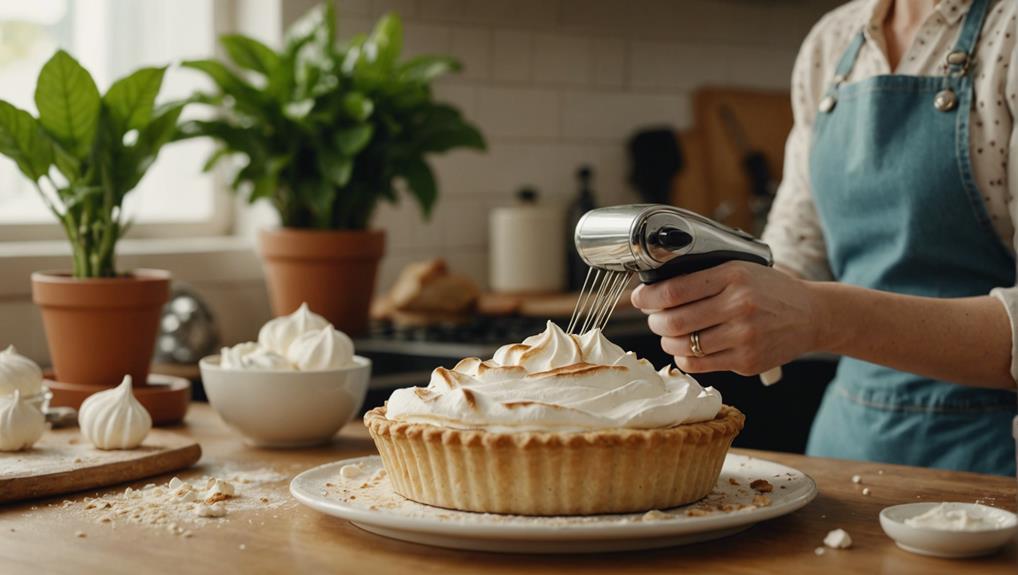
While you enhance your culinary skills and mental well-being, consider incorporating some unconventional tips and tricks to really spice up your cooking and baking routines. Delving into the unusual can transform the mundane into something spectacular, offering not just new flavors but also a feast for the eyes.
One fascinating approach is to integrate unexpected ingredients into your recipes. Have you ever thought about adding lavender to your lemonade or rosemary to your cookies? These herbs don’t just add a twist of flavor; they create a whole new tasting experience that’ll surprise your palate.
Switching up your flours can also lead to healthier and exciting outcomes. Here’s how you can start:
- Almond Flour: Perfect for gluten-free baking, it adds a nutty flavor and moist texture to your cakes and cookies.
- Coconut Flour: High in fiber and low in carbs, it’s ideal for diet-friendly recipes. Be mindful; it absorbs more liquid than other flours.
- Chickpea Flour: Great for savory dishes, adding a slight earthiness and boosting protein content.
Don’t shy away from experimenting with cooking techniques like sous vide or smoking. These methods not only enhance the flavors but also introduce you to the pleasures of slow-cooked tenderness and rich, smoky aromas.
Be smart: Multitask and take cooking and baking to the next level
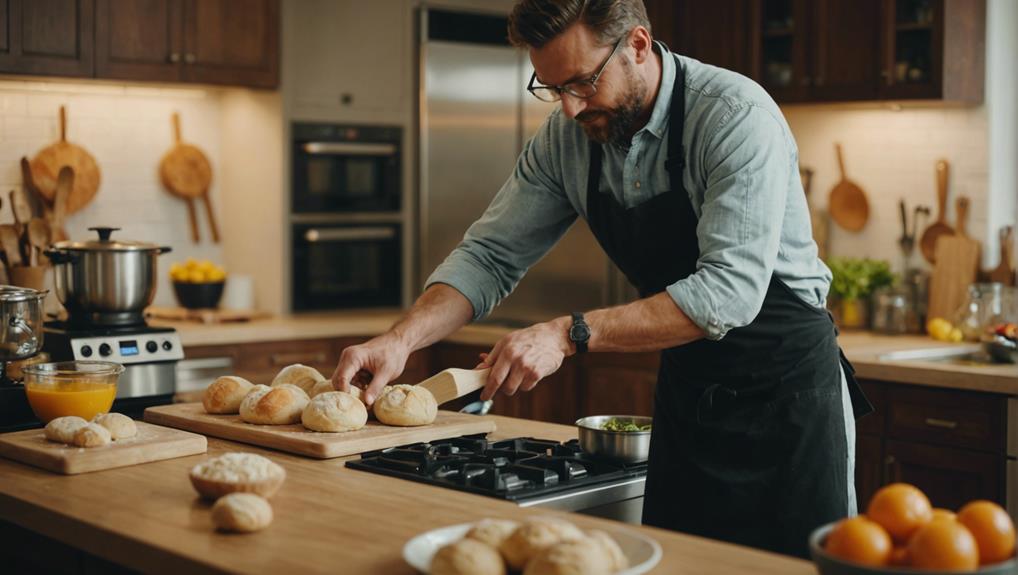
To take your cooking and baking hobby to the next level while maximizing your time and enjoyment, consider the following strategies:
- Leverage Audiobooks: Enhance your kitchen experience by listening to audiobooks from platforms like Audible.com or Blinkist.com. This allows you to enjoy learning new things or diving into different stories, all while your hands are busy chopping, stirring, or kneading.
- Enroll in Online Courses: Advance your culinary skills by taking affordable online courses. Websites like Skillshare.com, Coursera.org, and Udemy.com offer a variety of cooking and baking classes that can help you refine your techniques and learn new recipes from the comfort of your home.
While learning new cooking and baking hobbies, try fully personalized AI Hobby generator
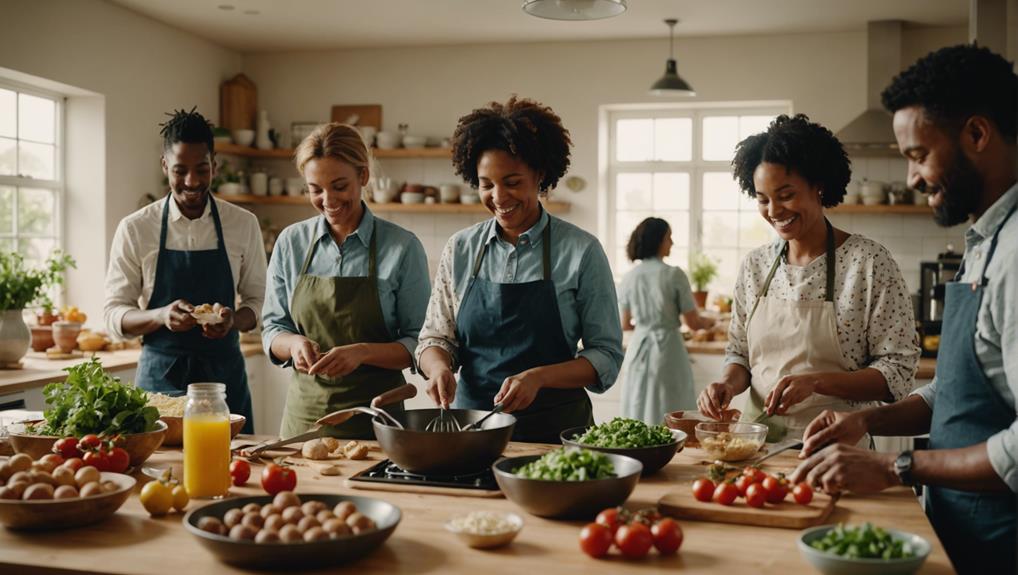
As you continue to refine your skills in cooking and baking, consider leveraging our two innovative AI-powered solutions designed to enrich your culinary journey: the AI Hobby Generator and the AI Hobby Coach.
- AI Hobby Generator: This tool is an AI-powered solution that offers personalized hobby recommendations based on your specific interests and needs. By engaging with our user-friendly chatbot, you can answer a few simple questions about what you’re looking for in a hobby. The more information you provide, the more tailored the suggestions will be. This tool is perfect for discovering new culinary activities that match your taste preferences and skill level. It sifts through a vast array of options to suggest unique and exciting recipes, ensuring each cooking session is a delightful adventure. Explore this tool and find your next culinary passion.
- AI Hobby Coach offers a structured approach to mastering new culinary skills. This AI-powered hobby learning assistant prepares a personalized hobby checklist complete with a comprehensive strategy on how to prepare, start, learn, and eventually master your chosen hobby within a specified time frame and budget. It also provides ongoing support for any hobby-related queries, making it an invaluable resource for serious culinary enthusiasts looking to expand their repertoire with new techniques and recipes. Start your structured culinary adventure with our AI Hobby Coach.
Using these tools, you’ll not only save time by having all the necessary resources consolidated in one place, but you’ll also enjoy the thrill of experimenting with new flavors and techniques. The excitement of exploring new recipes will enhance your mood, reduce stress, and when shared, these new creations can bring immense joy to you and your loved ones. Dive into your culinary exploration with our personalized AI tools and transform your cooking and baking into a continuous stream of exciting discoveries.
Final thoughts
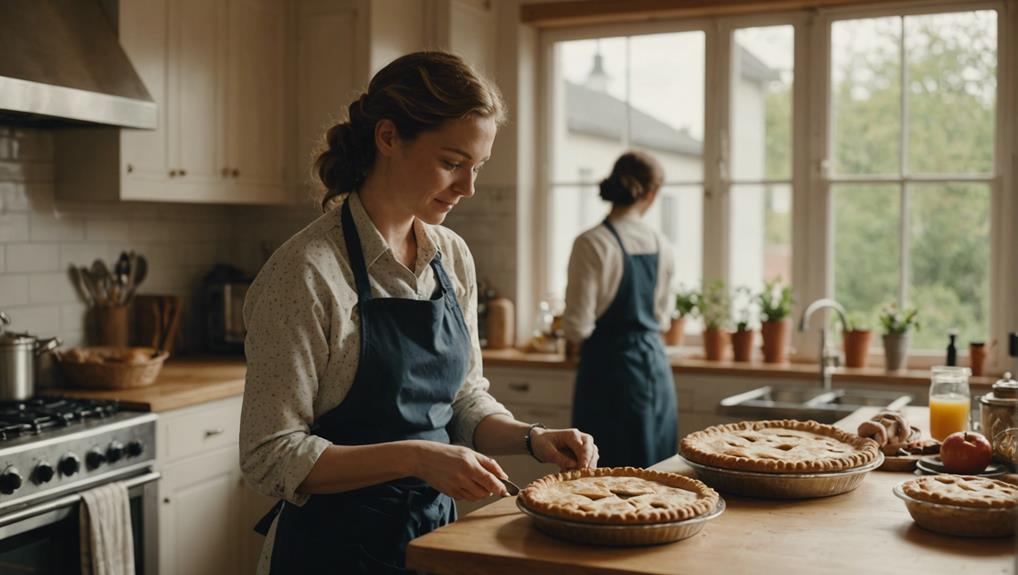
Exploring cooking and baking as hobbies not only sharpens your skills but also enriches your life with endless creative possibilities. Whether you’re whipping up a new dish or perfecting a pastry recipe, the joy and satisfaction derived from these activities are immeasurable. You’re not just feeding your stomach, but also nourishing your creativity and mental well-being.
As you delve into different cuisines and master various techniques, you’ll find that cooking and baking can be a meditative process that helps reduce stress and improve your mood. The act of creating something delicious from scratch is a powerful way to boost your self-esteem and can even turn into a social activity, whether you’re sharing your creations online or in person.
Moreover, by incorporating cooking and baking into your routine, you’re paving the way for a healthier lifestyle. Choosing ingredients, focusing on nutritional content, and controlling portion sizes become second nature, leading to better eating habits.
Frequently Asked Questions
Can Cooking and Baking Be a Hobby?
Yes, cooking and baking can definitely be hobbies. You’ll find them rewarding as they improve your skills and allow for endless creativity in combining ingredients and techniques to delight your palate.
What Are Some Hobbies for People Who Love Food?
If you’re a food enthusiast, consider hobbies like gourmet cooking, home brewing, or cheese making. They’ll deepen your culinary skills and let you explore new tastes and techniques in an enjoyable way.
Why Baking Is the Best Hobby?
Baking is your best hobby because it blends creativity with precision, letting you experiment while mastering skills. You’ll find joy and relaxation in every delicious treat you create, enhancing your culinary confidence.
Why Is Cooking the Best Hobby?
Cooking’s the best hobby because it boosts your creativity, improves your health, and brings joy through delicious meals. You’ll constantly learn and connect with others, turning every meal into an exciting adventure.




